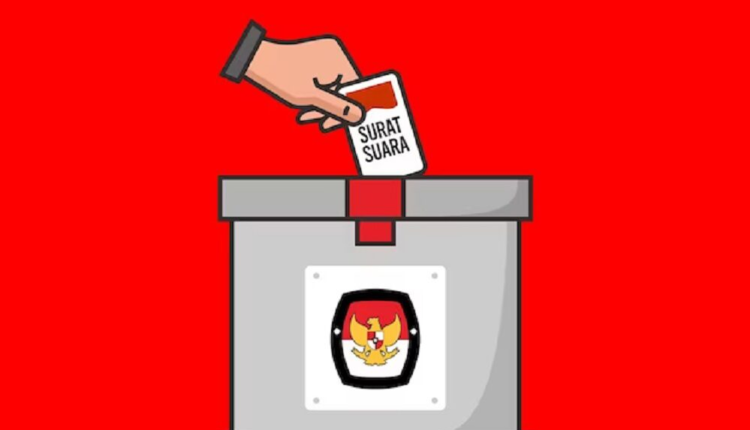Neutrality of Election Officials and Organizers Indicator of Success of Regional Election Implementation
By: Farid Gunawan)*
The neutrality of the apparatus and election organizers is one of the important pillars that guarantee the implementation of a fair, honest, and integrity-based regional election. In a political contestation such as the regional election, this neutrality is not just a formality, but is a crucial element that is able to maintain public trust in the democratic process. The public expects the security apparatus, the General Election Commission (KPU) and the Election Supervisory Body (Bawaslu), to be able to carry out their roles without bias, in order to create a healthy election process that is free from certain political interests.
This commitment to maintaining neutrality must be supported by strict supervision and transparency from various parties. The KPU and Bawaslu are expected to always be objective in carrying out their duties. This step includes ensuring that all candidates have equal opportunities without any discriminatory actions. Likewise, the TNI and Polri, who play a vital role in maintaining order and security during the Pilkada process, so that the public can feel a safe and conducive situation without intervention from any party.
The General Chairperson of the Central Board of the People’s Idea Struggle Initiator (PB Inspira), Rizqi Fathul Hakim, assessed that the performance of the Banten Police was very good, especially ahead of the 2024 Simultaneous Regional Elections. This guarantee of neutrality is very important for the community to feel safe and confident in the democratic process that will take place. Therefore, Rizqi invited all elements of society, including traditional leaders, cultural figures, and young people, to help maintain local security and traditions amidst differences in political choices.
The importance of neutrality in the regional elections is not just the hope of the people, but also a reflection of the success of democracy in Indonesia. The implementation of neutral elections will have an impact on the quality of the elected regional leadership, because the leader is expected to emerge from the pure choice of the people, not from the results of manipulation. In addition, the neutrality shown by the organizers and officials also shows that the state is serious about maintaining justice and public trust in state institutions.
Neutrality can also reduce the potential for conflict during the regional elections. In the history of elections in Indonesia, divisions often occur when there are allegations of non-neutrality or injustice committed by organizers or security forces. Therefore, maintaining neutrality also means contributing to maintaining national security stability, especially during election periods that are prone to conflict. If this neutrality is maintained, the public will be more ready to accept the results of the regional elections without suspicion or protests that lead to social conflict.
In an effort to maintain neutrality, the government has issued various strict rules and codes of ethics for organizers and officials. This code of ethics applies to ensure that every action and decision taken is in accordance with the principles of democracy and does not harm the public’s sense of justice. In addition, strict sanctions are also prepared for anyone who is proven to have violated this principle of neutrality. Implementation of the code of ethics and enforcement of sanctions are important steps in ensuring that anyone who has power in organizing the Pilkada can act professionally and does not abuse their authority.
Acting Mayor of Sukabumi, Kusmana Hartadji said it is important to maintain integrity and neutrality for State Civil Apparatus (ASN) in facing the 2024 Pilkada. ASN must not take sides in political affairs, except for the interests of the nation and state. As public servants, ASN must maintain their honor so as not to be seen to be siding with certain groups. ASN neutrality is an issue that is closely monitored, both by the public and the State Civil Service Agency (BKN). Because of the authority held by ASN, they are very vulnerable to being influenced by regional head candidates
In addition to the regulatory aspect, the role of public supervision is an important additional aspect. In this case, the public and civil society organizations are encouraged to independently monitor the Pilkada process. With direct supervision from the public, any actions deemed to violate neutrality can be immediately reported and followed up by the competent authorities. The presence of the public as independent supervisors is expected to strengthen public trust in the ongoing Pilkada process.
In the context of the 2024 Pilkada, maintaining neutrality is also a challenge in itself considering the vast territory and the many contestations taking place simultaneously in various regions. This situation requires strong coordination between the KPU, Bawaslu, and security forces so that all stages can take place in accordance with the established rules. The synergy between all parties involved in this Pilkada is expected to maintain stable political conditions in Indonesia, which will ultimately contribute to the smooth running of the Pilkada process as a whole.
Ultimately, the success of the Pilkada is not only determined by the final results of the voting process, but also by the integrity and trust of the community in the ongoing process. Therefore, the neutrality of the apparatus and election organizers is a benchmark for success in organizing the Pilkada. By maintaining neutrality, the government and all related agencies have made a real contribution to creating a healthy democratic environment, as well as advancing Indonesia towards a better and more prosperous future for all its people.
